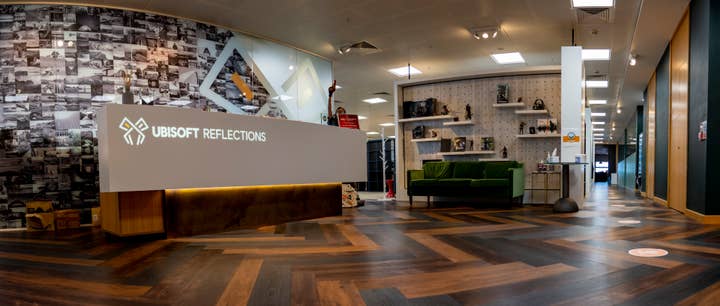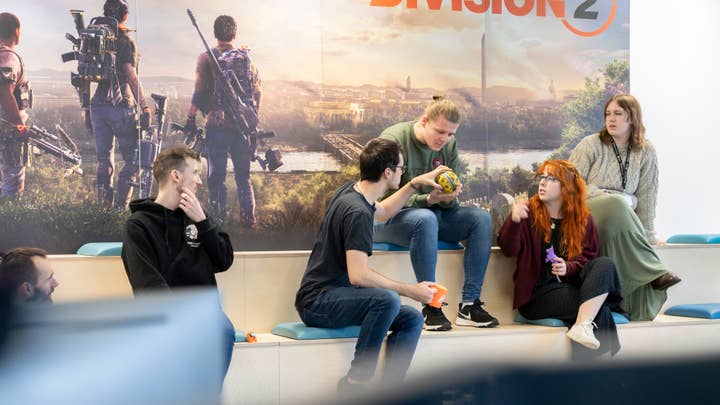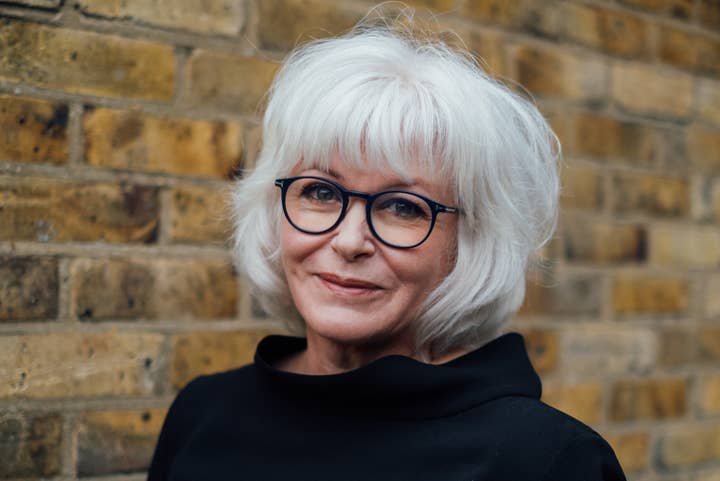Ubisoft’s Lisa Opie on leaving TV to help fix the games industry
The managing director for the publisher’s UK studios reflects on the challenges games firms face in trying to improve their company culture
Lisa Opie chose an interesting time to take the reins of Ubisoft Reflections and Ubisoft Leamington.
The former BBC exec joined last year in the wake of the 2020 allegations of abuse, discrimination and harassment, and amid Ubisoft’s many efforts to rectify the issues with its workplace culture and repair the damage to its reputation.
Moving from one industry to another is already a formidable task, but to do so when your new employer is undergoing intense scrutiny – a prominent example for an industry-wide crisis – is even more so.
“I was aware that the games industry had not been through the best of times for the last few years,” Opie tells GamesIndustry.biz when we sit down with her at Develop:Brighton. “And I think that an observation would be that it is a sector that is quite young in many ways, and it has grown incredibly rapidly.
“As the industry matures, it will confront the challenges that it’s had in the past, and it has done over the last couple of years. So, yes, I was aware of all of those challenges and what they were.”
Opie finds herself in charge of two studios at the Assassin’s Creed publisher. While they have been primarily used for supporting projects like Watch Dogs Legion and Tom Clancy’s The Division 2, the 400-strong workforce is part of the 18,000 development staff Ubisoft has around the world. It may seem small, but improving these two studios will still have an impact on the overall culture of Ubisoft, and facilitating that is a task Opie has embraced.
"As the industry matures, it will confront the challenges that it’s had in the past, and it has done over the last couple of years"
“The appeal of that is that when you begin to come up with a brilliant idea, or you work together to identify some ways in which you can make positive change, you can see the impact of change really, really tangibly,” she says. “So, I was really excited by the opportunity to begin to refocus our strategy, and think differently about what our priorities were, how we wanted to grow, and how we were going to grow our ambitions. Creating a culture where everybody felt that they were engaged, and they belonged, and it was exciting, and they had a voice. It felt like a really good challenge, and one that I’ve really enjoyed rising to.”
Prior to joining the games industry, Opie spent more than a decade working at the BBC. During her time there, she served as managing director for the studio’s UK production arm, as well as the Factual Drama and Digital Production teams. Before this, she worked at Twofour Digital, Flextech Television and Channel Five.
Discussions about removing misogyny, discrimination and other toxic behaviours from the games industry have been rampant in recent years, and it can be easy to think the sector is a difficult and negative space to work in. With decades of experience in another field, Opie is able to give perspective on whether these sort of issues occur elsewhere – and how they are dealt with.
“There are challenges in television production, and have been over the years, probably over a longer period of time, because it’s been around for a longer period,” she acknowledges. “In really creative organisations, where you have a deadline to deliver and it has to happen by a certain time -- look at journalism and newspapers -- [they] have had their challenges, too. And I think that in those sorts of cultures where there’s a real focus on delivery, at times you can forget about how to create a culture that’s inclusive, and where people feel valued.”
A company’s culture, she adds, is owned and impacted by everyone. While it’s clear that those with the most influence are the most empowered to make the biggest changes, everyone can do their part to improve a working environment. And she says turnover can be an effective tool in this regard, too.

“I think it’s incumbent on all of us to learn and absolutely take on board what we’ve learned,” she says. “When I talk to the teams about how we can learn from best practices just from a delivery and execution perspective, we haven’t necessarily shared best practices [in the past].
“We need to continue to attract people to work within our industry. We’re only going to do that if we’re an attractive sector to work in. You could probably earn more if you go and work in fintech, basically. So, get better, and all of us need to make sure that working environment, working hours, culture, best practice and learning from mistakes."
"We need to continue to attract people to work within our industry. We’re only going to do that if we’re an attractive sector to work in"
In terms of what Ubisoft has been doing to prevent and reduce work stress in an industry focused on constant delivery, Opie shared some details during her keynote talk at Develop:Brighton.
The two studios she manages offer professional mental health support via Plumm Health, with the amount of staff making use of this increasing from 24 people to 129 over the course of one year. Meanwhile, the number of employees making use of the wellbeing events Ubisoft arranged rose from 14% to 35%.
There has also been a focus on training managers around how to care for their staff. An internal survey revealed that in 2021, 95% of managers felt they could spot the signs and symptoms of poor mental health, while 75% felt they had the tools to support colleagues in this position – up from 85% and 55% respectively since 2019.
These efforts are also supported by dozens of wellbeing champions among the staff, who Opie says “get to see things that a manager may not.” Ubisoft has also been running drop-in sessions where people can ask questions anonymously, and around half the studio take up this opportunity, with many using it as a chance to say they’re feeling stressed and asking for support.
“Talking about it is always the first way of handling anything,” Opie says. “It’s actually often men who say, ‘Actually, I’m a bit tired, and I’m not sure my mental health is in a great space right now. I need to take some time out.’ And the fact that they feel fine to say that is a real testament about how good those wellbeing champions have been.”

Another balance to strike is introducing all these measures without impacting the workload. There are still deadlines to meet, so how do you encourage staff to take advantage of these things without the fear of falling behind?
“The first thing is to say it’s incredibly important, so actually if we don’t do that, then when you come six months’ time nearer to launch, we’re going to have a bigger issue, because there are going to be a lot of people who are too knackered to put the time in to be able to carry that workload. It’s really important we make the investment all the way through and up front. And we give people time out to do that.”
Wellbeing champions, for example, get time out of their working day for that role, and everyone is given volunteering time, including an extra three days’ leave to help out with external organisations.
"You don’t wave a magic wand and go, ‘Now, it’s okay, everybody. It’s alright.’ It’s a slow process, and it is about giving people a voice"
“It is as important that they feel emotionally happy and content within their working lives as they are productive in what they’re delivering, because they’ll deliver better back,” says Opie. “It’s a really good investment in people, and it absolutely pays dividends. Of course we’re going to go, ‘Is this where we should be investing money? And can you make a business case for that?’ The interesting thing is we always can. And all of our ability to give support during the last couple of years to people in terms of individual counselling has actually paid dividends, because people are less likely to be off sick.”
This is an ongoing endeavour, and one that’s a priority for Opie as she enters the second year in her role. But it’s one she is confident Ubisoft can continue improving upon.
“You don’t do it in a day,” she says. “You don’t wave a magic wand and go, ‘Now, it’s okay, everybody. It’s alright.’ I wish you could, but you can’t. It’s a slow, slow process, and it is about giving people a voice, and allowing that voice to be celebrated and accepted and heard, and not judging it.
“Every single organisation in every industry goes through the same challenges, which is about how do you make sure that people feel the ability to speak up safely? Because actually, you’ll be a better, stronger company if you hear what people have to say to you.”
There has been pressure on major games companies -- Ubisoft included -- to show progress in how they are improving their company culture and addressing the issues raised by the waves of allegations of the last two years. And not just from industry, but even from some consumers. The challenge is working out how to share their progress publicly to a skeptical industry and playerbase.
“It’s really striking how engaged players are – they’re not like fans of EastEnders,” Opie says. “People get quite opinionated about EastEnders, but this is like, ‘Oh my God!’ Because actually, they are experts, too. Experts in what we do in our industry, in what we make, and that’s extraordinary and really impressive.
“I definitely think it starts with how we as an industry talk about ourselves. If we don’t talk about ourselves as being a progressive, constructive, welcoming, inclusive, positive, highly creative, really innovative sector, then why would anybody else talk to us about that either?”

